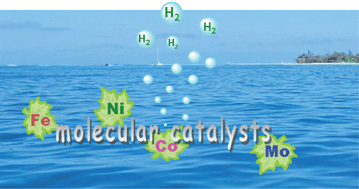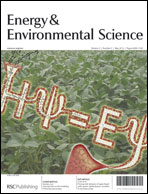This perspective article reviews the recent important progress in electrocatalytic hydrogen production catalyzed by earth-abundant metal complexes. The catalysts are divided into two categories depending on the media used in the hydrogen-evolving reactions, with an emphasis on the types of acids employed. The catalysts used in the first category, which work in organic solutions, include nickel and cobalt complexes with base-containing diphosphine ligands, cobaloximes, cobalt tetrapyridine complexs, and [NiFe]- and [FeFe]-hydrogenase mimics. Molybdenum and cobalt pentapyridine complexes, as well as the cobalt bis(iminopyridine) complex reported very recently, are the most important examples of catalysts used in the second category, which work in aqueous solutions. The advantages and disadvantages of the different types of catalysts are discussed and the hydrogen-evolving mechanisms for the well-studied catalysts are illustrated. In addition, several molecular catalyst-modified electrodes for hydrogen production are described.

You have access to this article
 Please wait while we load your content...
Something went wrong. Try again?
Please wait while we load your content...
Something went wrong. Try again?


 Please wait while we load your content...
Please wait while we load your content...